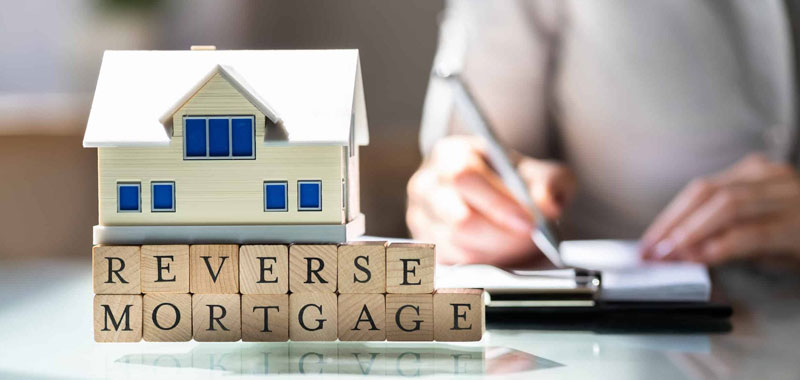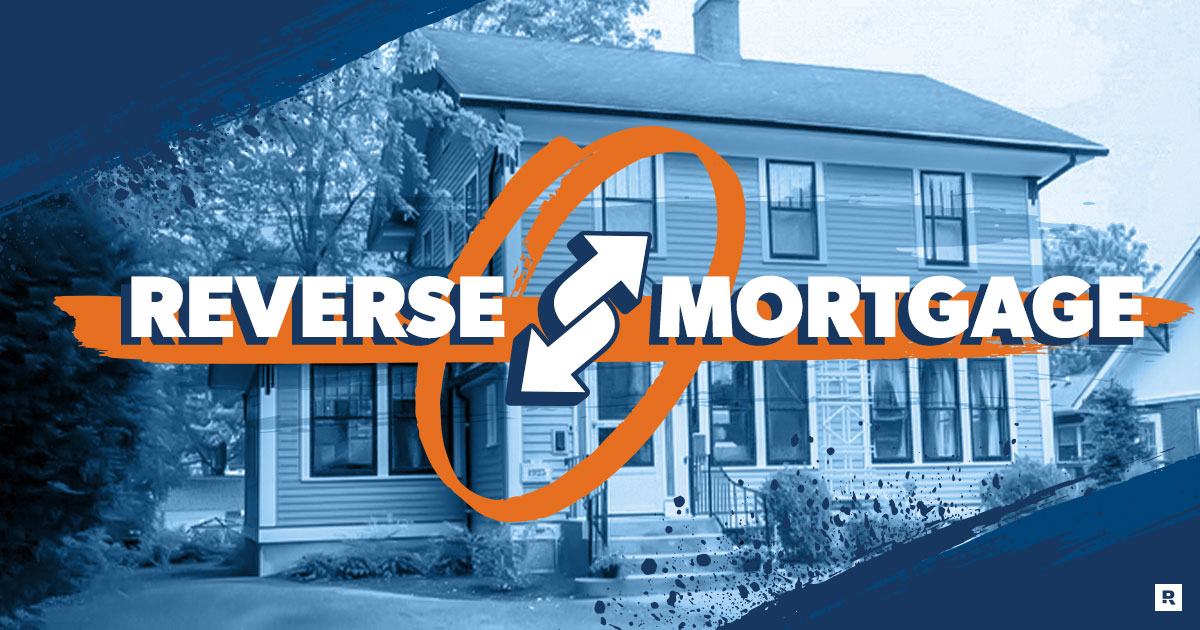Unlock Financial Liberty: Your Guide to Investing In a Reverse Home Loan
Understanding the complexities of reverse mortgages is vital for house owners aged 62 and older seeking financial freedom. As you consider this alternative, it is essential to grasp not just just how it works yet also the implications it may have on your monetary future.
What Is a Reverse Home Loan?

The fundamental charm of a reverse mortgage depends on its possible to boost economic adaptability during retired life. Homeowners can utilize the funds for different purposes, including medical costs, home enhancements, or daily living expenses, hence providing a safeguard throughout a critical point of life.
It is vital to understand that while a reverse home loan permits boosted cash flow, it additionally reduces the equity in the home gradually. As rate of interest builds up on the impressive financing balance, it is essential for prospective customers to thoroughly consider their long-term economic plans. Consulting with an economic expert or a reverse home mortgage specialist can offer valuable insights right into whether this option aligns with a person's financial goals and conditions.
Eligibility Needs
Comprehending the eligibility requirements for a reverse home loan is crucial for house owners considering this financial option. To certify, applicants must be at the very least 62 years of ages, as this age standard enables senior citizens to gain access to home equity without regular monthly home mortgage repayments. Furthermore, the property owner should inhabit the house as their main house, which can include single-family homes, certain condos, and produced homes meeting specific guidelines.
Equity in the home is one more vital demand; homeowners usually require to have a considerable amount of equity, which can be established through an evaluation. The quantity of equity offered will straight influence the reverse mortgage amount. Candidates have to show the ability to keep the home, consisting of covering building tax obligations, property owners insurance policy, and maintenance prices, making sure the home remains in excellent problem.
Additionally, prospective consumers need to undergo a monetary evaluation to evaluate their revenue, credit report, and total monetary situation. This analysis assists lenders determine the candidate's ability to fulfill recurring obligations connected to the home. Meeting these demands is critical for securing a reverse mortgage and making sure a smooth monetary shift.
Advantages of Reverse Mortgages
Countless advantages make reverse home mortgages an enticing choice for elders seeking to boost their monetary versatility. purchase reverse mortgage. Among the primary benefits is the capacity to convert home equity right into cash without the need for month-to-month mortgage settlements. This attribute permits elders to accessibility funds for numerous demands, such as clinical expenditures, home improvements, or daily living prices, therefore minimizing monetary stress and anxiety
Furthermore, reverse home mortgages give a safeguard; seniors can remain to live in their homes for as long as they fulfill the financing requirements, promoting security during retired about his life. The profits from a reverse mortgage can also be utilized to postpone Social Safety and security advantages, possibly causing higher payouts later.
Moreover, reverse mortgages are non-recourse financings, suggesting that customers will certainly never ever owe greater than the home's worth at the time of sale, protecting them and browse around this site their successors from monetary responsibility. Lastly, the funds gotten from a reverse mortgage are usually tax-free, adding an additional layer of financial alleviation. Generally, these advantages position reverse home loans as a functional service for elders looking for to enhance their economic circumstance while keeping their cherished home atmosphere.

Prices and Charges Included
When taking into consideration a reverse home loan, it's vital to know the different expenses and fees that can impact the total monetary image. Comprehending these expenditures is crucial for making an informed choice concerning whether this financial item is best for you.
Among the key prices connected with a reverse home loan is the source charge, which can differ by lending institution however generally varies from 0.5% to 2% of the home's appraised value. Furthermore, house owners ought to expect closing costs, which might include title insurance, appraisal fees, and credit report costs, typically totaling up to numerous thousand bucks.
One more considerable cost is mortgage insurance policy premiums (MIP), which safeguard the lending institution versus losses. This cost is generally 2% of the home's value at closing, with an ongoing annual premium of 0.5% of the remaining loan equilibrium.
Last but not least, it's essential to think about continuous prices, such as residential or commercial property taxes, house owner's insurance coverage, and upkeep, as the borrower remains accountable for helpful resources these expenses. By very carefully reviewing these fees and prices, property owners can better analyze the monetary effects of going after a reverse home loan.
Steps to Get Going
Starting with a reverse mortgage involves several essential steps that can help simplify the process and guarantee you make educated decisions. Analyze your economic circumstance and identify if a reverse home mortgage aligns with your lasting objectives. This includes reviewing your home equity, existing financial debts, and the need for additional earnings.
Following, research various loan providers and their offerings. Search for trusted organizations with positive testimonials, transparent cost structures, and competitive passion rates. It's important to contrast problems and terms to discover the finest fit for your needs.
After selecting a loan provider, you'll require to complete a thorough application process, which typically needs documents of income, properties, and residential or commercial property details. Engage in a therapy session with a HUD-approved counselor, that will give insights into the implications and responsibilities of a reverse home mortgage.
Verdict
Finally, reverse home mortgages offer a practical choice for seniors seeking to boost their economic security throughout retirement. By transforming home equity right into obtainable funds, homeowners aged 62 and older can address different financial needs without the pressure of monthly repayments. Recognizing the complexities of eligibility, benefits, and connected expenses is vital for making notified decisions. Careful consideration and preparation can bring about enhanced lifestyle, making certain that retirement years are both safe and meeting.
Comprehending the intricacies of reverse home loans is necessary for property owners aged 62 and older seeking economic flexibility.A reverse mortgage is a financial product developed primarily for home owners aged 62 and older, enabling them to convert a part of their home equity into cash - purchase reverse mortgage. Consulting with a financial advisor or a reverse home loan specialist can provide important insights into whether this alternative lines up with an individual's financial goals and situations
In addition, reverse home mortgages are non-recourse finances, suggesting that debtors will certainly never ever owe more than the home's worth at the time of sale, safeguarding them and their successors from economic responsibility. In general, these advantages setting reverse home mortgages as a functional solution for elders looking for to improve their economic circumstance while maintaining their valued home environment.